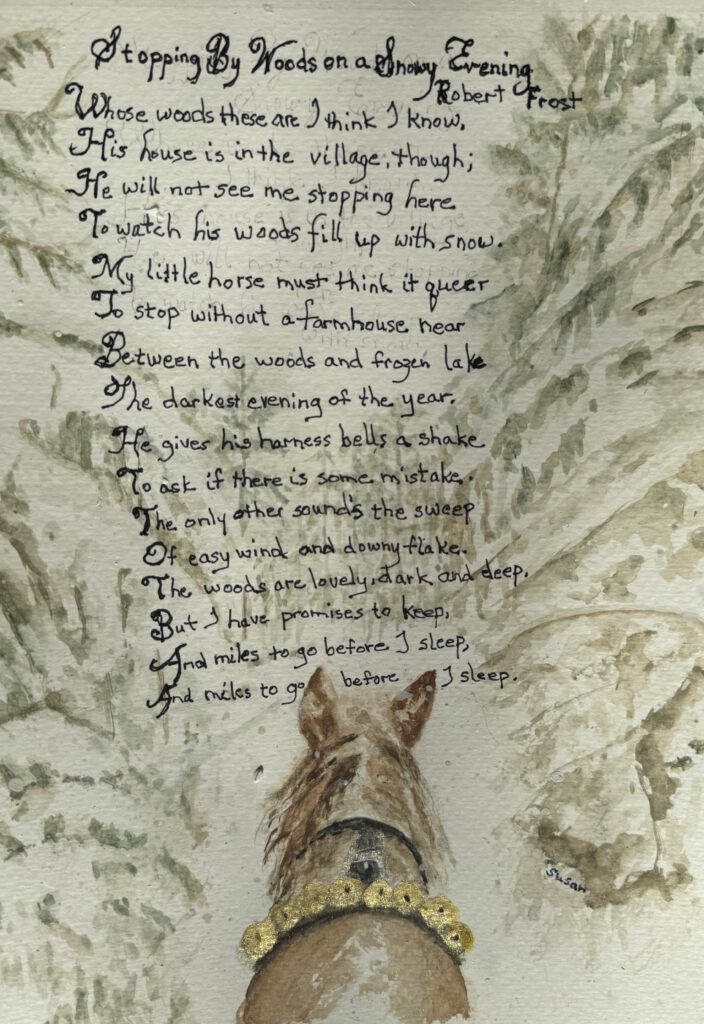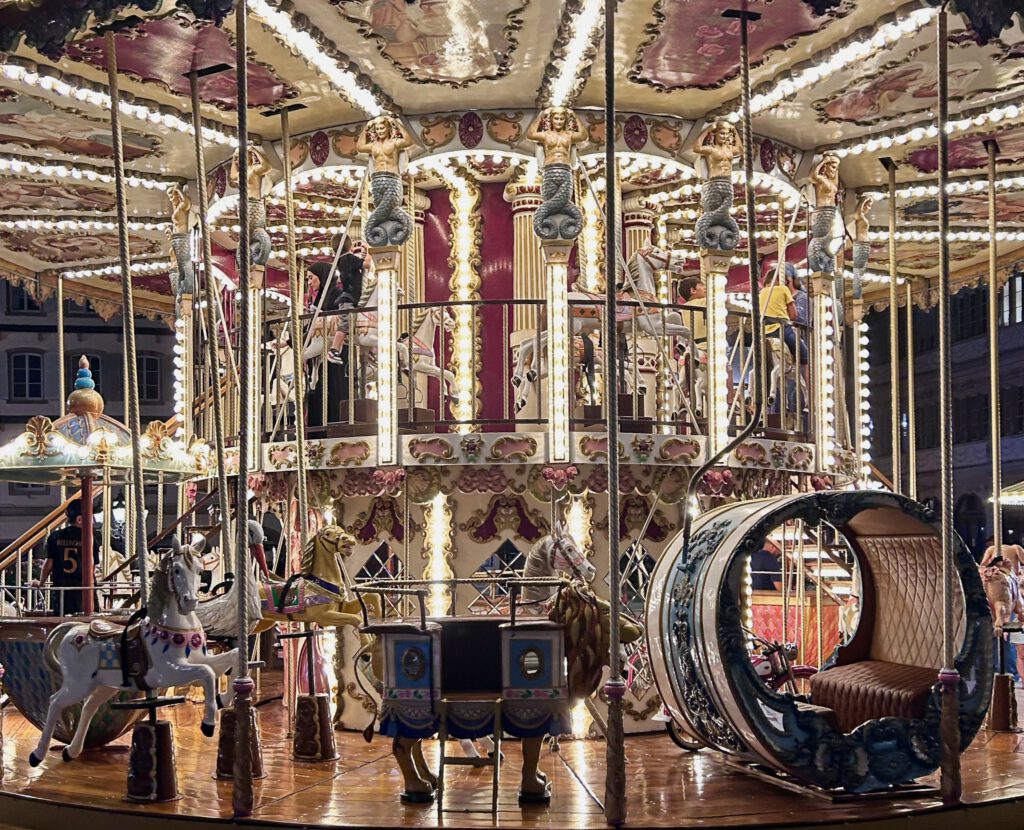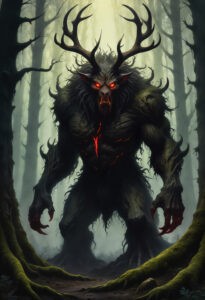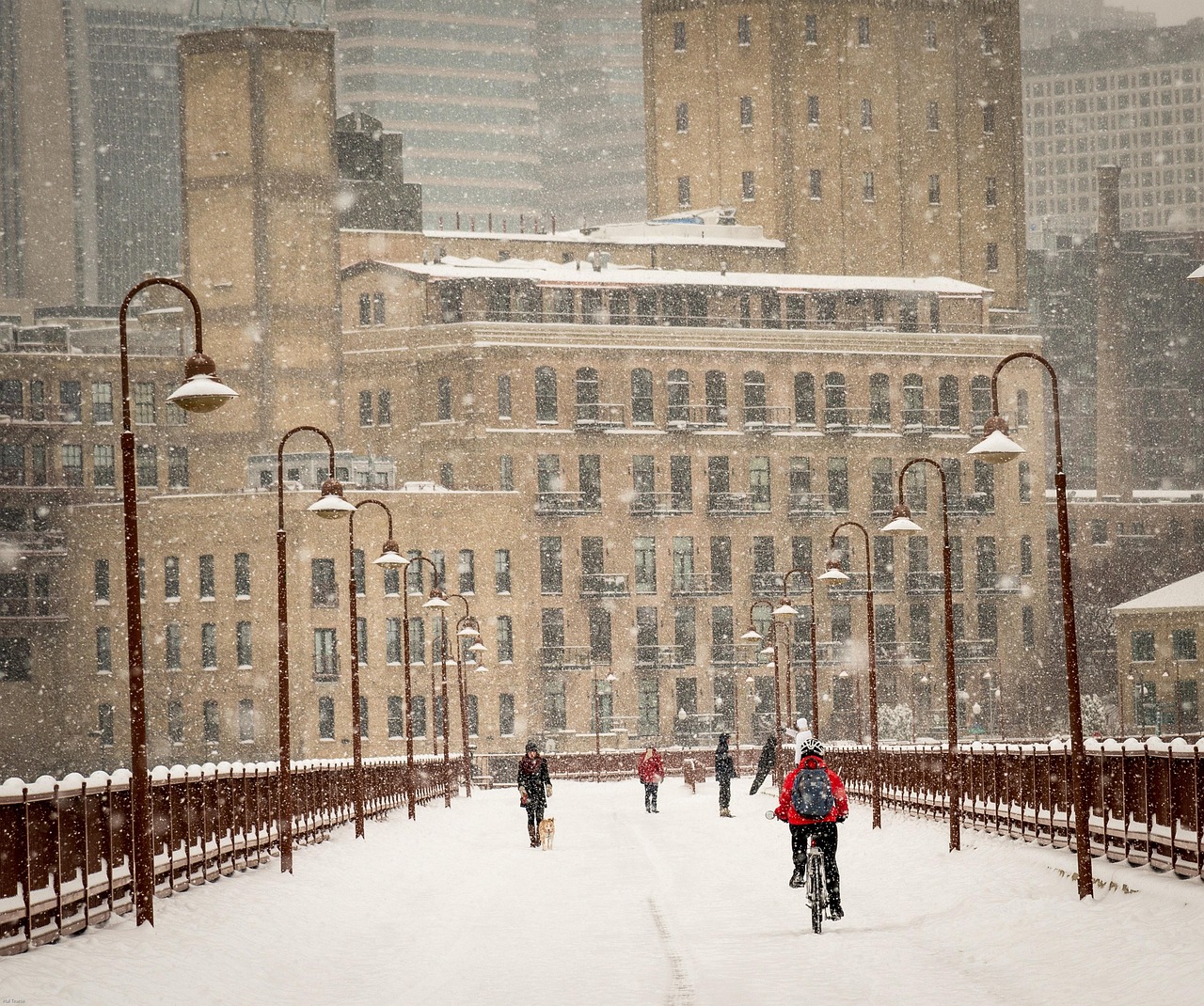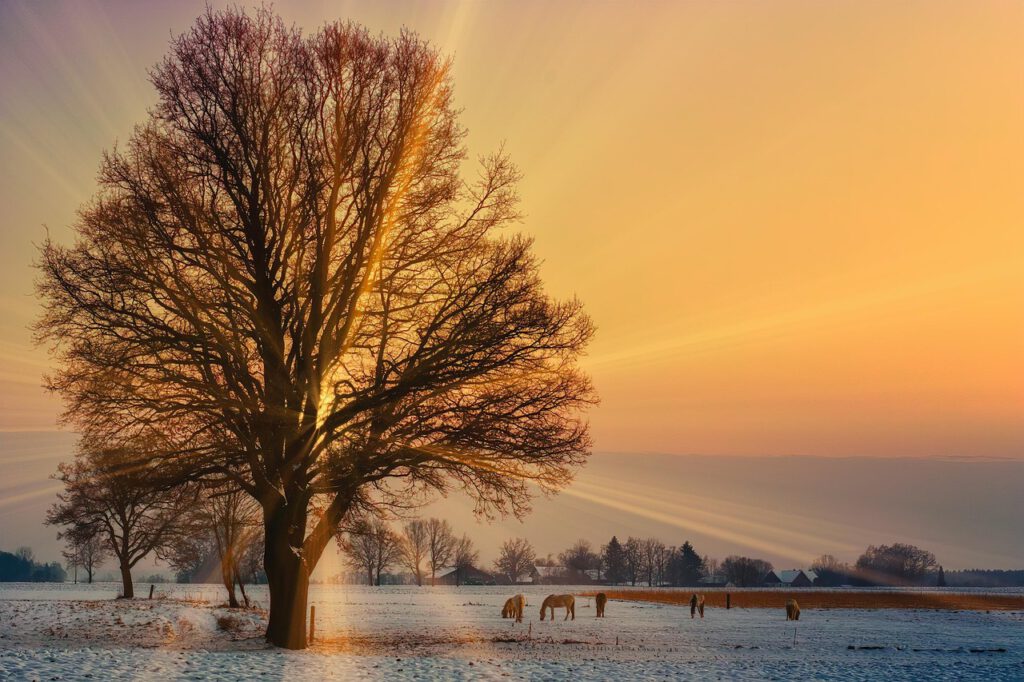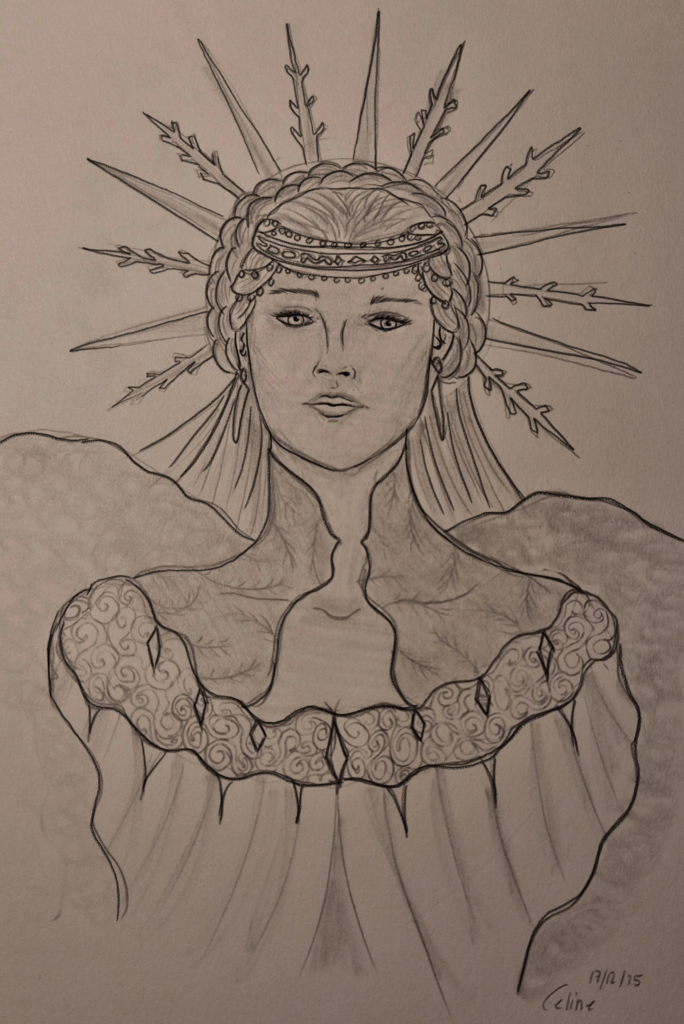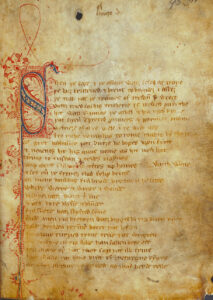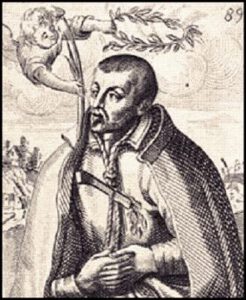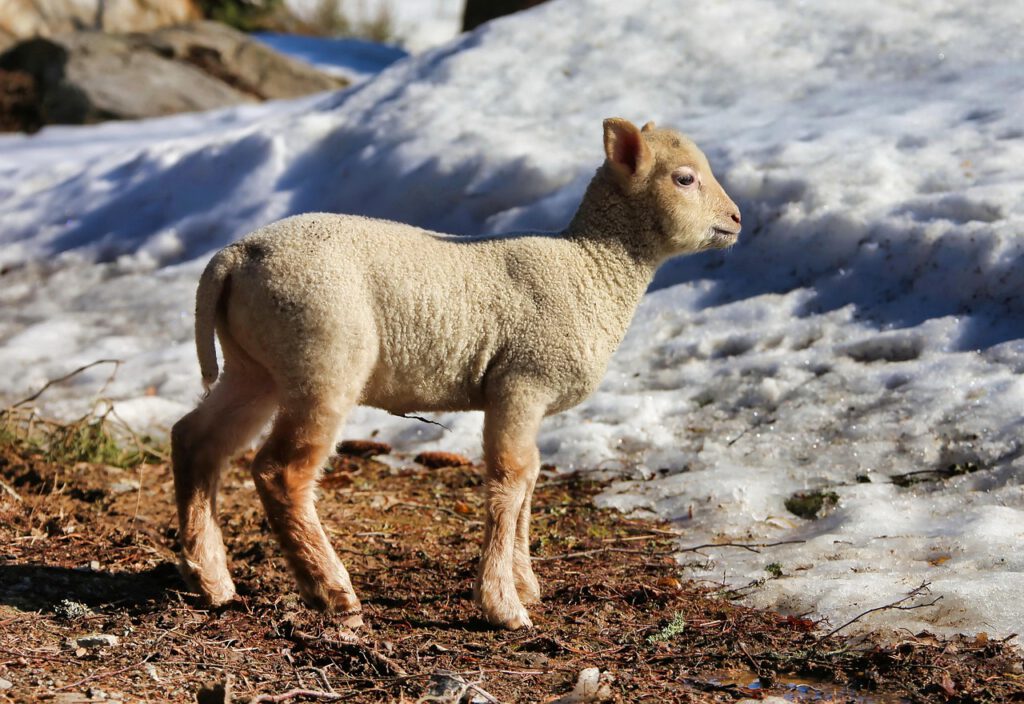"Stand and live": Tropes of Falling, Rising, Standing in Robert Lowell's Lord Weary's Castle
Frank J. Kearful
Published in Connotations Vol. 17.1 (2007/08)
Tropes of falling, rising, and standing recur frequently in Robert Lowell's poetry from Lord Weary's Castle (1946), whose title−page illustration depicts Abel falling backwards in a field after having been assaulted by Cain, caught leaving the scene of the crime, to Day by Day (1977) and to poems left unpublished at the time of Lowell's death in 1977.1) I wish to draw attention here to their centrality in Lord Weary's Castle, where they are connected with the volume's overarching theme of life restored. My close readings focus on how the tropes collaborate with verse form, allusion, and intertextual metamorphoses to project fictions of life restored, and on how journeying, buildings, and apocalyptic scenarios incorporate the tropes within religious, historical, and autobiographical frames of reference. While ultimately wedded to a Christian hope in life restored, the tropes undergo perilous trials during the course of a journey from the initial poem, "The Exile's Return," to the final poem, "Where the Rainbow Ends," which bids the poet himself "Stand and live."
1.
In "The Exile's Return," first published in The Nation on February 23, 1946, tropes of falling, rising, and standing frame a prophetic vision of life restored in Germany after World War II. When readers encountered it at the outset of Lord Weary's Castle, published in December, it was still a very contemporary poem, and was the first of many poems in the volume that alluded to wars in Europe from the Middle Ages to [→page 30] the twentieth century, and in North America from King Philip's War to the Civil War:
The Exile's Return
5
10
15
20
24
There mounts in squalls a sort of rusty mire,
Not ice, not snow, to leaguer the Hôtel
De Ville, where braced pig−iron dragons grip
The blizzard to their rigor mortis. A bell
Grumbles when the reverberations strip
The thatching from its spire,
The search−guns click and spit and split up timber
And nick the slate roofs on the Holstenwall
Where torn−up tilestones crown the victor. Fall
And winter, spring and summer, guns unlimber
And lumber down the narrow gabled street
Past your gray, sorry and ancestral house
Where the dynamited walnut tree
Shadows a squat, old, wind−torn gate and cows
The Yankee commandant. You will not see
Strutting children or meet
The peg−leg and reproachful chancellor
With a forget−me−not in his button−hole
When the unseasoned liberators roll
Into the Market Square, ground arms before
The Rathaus; but already lily−stands
Burgeon the risen Rhineland, and a rough
Cathedral lifts its eye. Pleasant enough,
Voi ch'entrate, and your life is in your hands.
a
b
c
b
c
a
d
e
e
d
f
g
h
g
h
f
i
j
j
i
k
l
l
k
(sestet)
(quatrain)
(sestet)
(quatrain)
(quatrain)
"The Exile's Return" marshals a sequence of where−when−where−where−when subordinate clauses attended by an accretion of and additive elements to structure its configurations of space and time. One begins to realize after reaching line 6 that Lowell's iambic pentameter verse paragraph is not blank verse but a systematically built edifice for which sestets and quatrains also serve as building blocks. The abcbcadeed rhyme scheme of the first sestet+quatrain unit, with a trimeter introduced to conclude the sestet, recurs in the second sestet+quatrain unit's fghgfhijji rhymes, the sixth line again being a trimeter. The "extra" final quatrain (kllk) solidifies the base on which the [→page 31] whole rhyming structure stands. Lowell's incorporation within the verse paragraph of the ten−line stanza that Matthew Arnold used for "The Gipsy Scholar" is thematically allusive, insofar as Arnold's stanzaic poem recounts the self−exile of one "Who, tired of knocking at preferment's door, ⁄ One summer−morn forsook ⁄ His friends, and went to learn the gipsy lore, ⁄ And roamed the world with that wild brotherhood." Unlike Lowell's exile, he "returned no more" (335). In Lord Weary's Castle Lowell makes repeated use of the "exile" stanza, including at the end in "Where the Rainbow Ends," another rendition of the exile returned theme.2)
In a poem rife with religious and literary allusions, a link is forged with the stoning of St. Stephen, alluded to in the epigraph to Lord Weary's Castle, when falling "torn−up tilestones crown the victor," with a pun on "crown" (enhanced by "Stephanos," Greek for "crown" or "garland").27) There is no outright pun on "Fall" at the end of line 9, but after a late caesura "Fall" lingers for a split second as an appendage of the line's semantic thrust ("Where torn−up tilestones crown the victor. Fall"), even as it fulfils the line's delayed metrical aspirations. Perched at line's end, it also pledges rhyming allegiance with the preceding line. The "Holstenwall ⁄ Fall" rhyme lodged within a quatrain (deed in the ongoing rhyme scheme) echoes Humpty Dumpty's wall ⁄ fall, leaving us with a pun, after all, on "Fall." Lowell was given to making odd connections of this sort through wordplay, rhyme, dead metaphors, jaded idioms, and unlikely allusions.
Without naming the city alluded to in "The Exile's Return," Lowell scatters clues in the form of phrases from the H. T. Lowe−Porter translation of Thomas Mann's novella "Tonio Kröger."3) Insofar as Tonio intertextually slips into the role of the "you" addressed, he becomes the "exile" who returns to Lübeck, his North German birthplace, which he had left to pursue a vocation as a poet, initially in Italy and then in Munich. In his novella, Mann draws on his own leaving of Lübeck for Munich in 1894, and directly uses his brief revisiting of Lübeck in 1899 while on the way to Denmark. Tonio very briefly returns, after thirteen years' absence, while on his way to Denmark.
[→page 32] During the war an exile in America, where he became an American citizen in 1944, Mann broadcast addresses to the German people via the BBC from his Pacific Palisades fastness in California. In them he defended Allied firebombing of Germany, which began in 1942 with the bombing of Lübeck, about which he expressed sorrow a few days afterwards; but he asked his fellow Germans the stark question, "Hat Deutschland geglaubt, es werde für die Untaten, die sein Vorsprung in der Barbarei ihm gestattete, niemals zu zahlen haben?" (Politische Schriften und Reden 223) ["Did Germany believe that it would never have to pay for the misdeeds which its lead in barbarism enabled it to commit?"(Listen Germany! 85)]. Lübeck's most famous son returned to receive an award of honorary citizenship in 1955, the year of his death, in a ceremony that took place before the same Rathaus (i.e., town hall) referred to in Lowell's poem.4) For his part, Lowell condemned Allied firebombing of German cities, and sentenced in October 1943 to a year and a day as a conscientious objector, he became an exile of sorts within his own country.5)
"Not ice, not snow" (l. 2) gives an intertextual game away that associates "The Exile's Return" with "Tonio Kröger."28) The Lowe−Porter translation of Mann's novella begins, "The winter sun, poor ghost of itself, hung milky and wan behind layers of cloud above the huddled roofs of the town. In the gabled streets it was wet and windy and there came in gusts a sort of soft hail, not ice, not snow" (76). Lowell's "the Holstenwall" picks up a reference to it in "Tonio Kröger": "'All right; let's go over the wall,' [Tonio] said with a quaver in his voice. 'Over the Millwall and the Holstenwall, and I'll go as far as your house'" (86).29) Search−guns replace machine saws, when Mann's sentence "Hans's people had owned for some generations the big wood−yards down by the river, where powerful machine saws hissed and spat and cut up timber" (88) becomes in the poem "The search−guns click and split up timber ⁄ And nick the slate−roofs of the Holstenwall" (ll. 7−8).
"The Exile's Return" also assimilates nostalgic memories of the Lübeck to which Mann's Tonio Kröger returned in a kind of reverie: [→page 33] "he looked at everything: the narrow gables … the Holstenwall… . Then he … went through the squat old gate, along the harbour, and up the windy street to his parents' house… . The garden lay desolate, but there stood the old walnut tree where it used to stand, groaning and creaking heavily in the wind" (108, 111, 113). The poem accords Tonio another opportunity to return to Lübeck decades later, after its destruction in World War II. Although dynamited as if in a wilful attempt to fell it, the walnut tree continues to stand, and its resistance even to dynamiting cows the Yankee commandant.6) An emblem of survival, it stands imposingly enough to shadow the gate. Tonio's youthful self−consciously poetical verses about the walnut tree that Mann writes of with ironic humor (94) are an additional element in Lowell's intertextual game. He takes up where the versifying young Tonio left off, but in an altogether different manner, and accords the walnut tree, a new emblematic significance of stoic survival. By contrast, "your gray, sorry and ancestral house" alludes dourly to the Kröger family home and covertly, perhaps, to Lowell's own "ancestral house."
At a dream−logic level, Lowell transforms and transfers other motifs, giving them contemporary historical resonance. Tonio's father, for example, who twice reproached him for his low grades at school, is recurrently described as wearing a wildflower in his button−hole, a motif that Lowell transfers to "the peg−leg and reproachful chancellor ⁄ With a forget−me−not in his button−hole." The conflated father⁄chancellor's being made "peg−leg," injuring him but rendering him in a way more ominous, associates him with a traditional depiction of the devil as lame, and might be taken as a way of intimating that the old, conservative−patrician class, of which Tonio's father is a representative, must bear their share of the blame for the Third Reich. One also recalls that Goebbels, the most diabolical of Hitler's henchmen, did not sport a peg leg but had a bad limp, a clubfoot, and his right leg was shorter than his left. Historically, the only chancellor in question is, however, "forget−me−not" Adolf Hitler himself, who after being named Chancellor of Germany by Hindenburg in January, 1933, [→page 34] appointed Goebbels his Minister for Public Enlightenment and Propaganda.7) Read within German historical contexts, the "reproachful chancellor" you "will not meet" can be taken as a wisecracking allusion to Hitler's not being around to reproach the Lübeckers for their inglorious capitulation, he having committed suicide in his Berlin bunker on April 30, 1945, full of reproach toward his "Volk" for having failed him. For their part, the "strutting children" of Lowell's poem resurrect the children, Tonio among them, who are walking home from school at the outset of Mann's novella, but I suspect that some 1946 readers associatively superimposed on Lowell's "strutting" image familiar newsreel and movie images of marching Hitler Youth groups and, more direly, the goose−stepping German soldiers that a generation of German children became.
An adversative "but" (line 21) heralds a switch to a visionary mode, and as the poem shifts its gaze from northern, Protestant Lübeck southwestward toward the Catholic Rhineland Marian floral symbolism blossoms as "lily−stands ⁄ Burgeon the risen Rhineland." There life is flourishing, and a resurrection graced by two religious associations of the lily has already occurred: the spray of lilies that the angel Gabriel holds in his hand when he appears before the Virgin Mary to announce that she is to be the mother of the Christ child, and the lily as a floral emblem of the Resurrection. Lowell also makes "burgeon," normally intransitive, function as a transitive verb when the lily−stands, themselves risen and burgeoning, "burgeon" the "risen Rhineland." Marian associations proliferate insofar as after the angel's presentation to her of the lily, Mary herself "burgeons," pregnant with the fruit of her womb, Jesus. Lowell does not sever the hyphenated compound noun "lily−stands" ("stand" in the sense of a group or growth of small trees or plants), but in collaboration with "risen" the verbal force of "stands" asserts itself. The blizzard that the gargoyle dragons gripped to their "rigor mortis" at the outset of the poem is no more, and a rough cathedral that "lifts its eye" stands in place of the apocalyptic "rough beast" of Yeats's "The Second Coming," which seeing "its hour come at last, ⁄ Slouches toward Bethlehem to be [→page 35] born."8) In his own "second coming" poem of return and rebirth, Lowell adopts the biblical topos "to lift one's eyes," as in Psalm 121:1, "I will lift up my eyes to the hills, from whence cometh my help," and Psalm 123:1, "Unto thee I lift up mine eyes, O thou that dwellest in the heavens."
Lowell's pentameter responds to the visionary burgeoning with a trochaic substitution that foregrounds "pleasant" and initiates a rhythmically pleasing choriamb, "Pleásant enoúgh." The preceding syntactic full−stop after three iambs ("Cathédral lífts its eýe. Pleásant enoúgh,") confers a pause, as if the "eye" were given a moment to see, and as if the prospect it surveys were indeed "Pleasant enough." Lowell's genial obiter dictum is followed up by a revocation of the initial portion of a line from Dante's Inferno, "Lasciati ogni speranza, voi ch'entrate" (iii: 9), "Abandon every hope, ye that enter" (Sinclair translation). Quoting only the "ye that enter" portion of it, Lowell in effect emends Dante's inscription, making "Pleasant enough" its first half as if offering assurance that things are not so bad as all that. Hope need not be abandoned: "Pleasant enough, ⁄ Voi ch'entrate." After all, it is not Hell that "you" are being bidden to enter, which would be an inferno more lasting than the one Lübeck became in the firebombing of March 28, 1942 during the night before Palm Sunday, when Christ entered Jerusalem.9) The postwar prospect that the cathedral's lifted eye surveys is perhaps no land of milk and honey, but as a token of divine forgiveness and of life restored the vision is indeed pleasant enough. The sentence's elliptical syntax also allows for the option of entering the cathedral itself, an indubitably pleasant enough alternative to entering the gate of Hell. Ironic understatement is followed by a codicil that serves as a vademecum, "and your life is in your hands." Much difficult journeying lies ahead, before the author, casting himself as exile in "Where the Rainbow Ends," enters a counterpart of the "rough ⁄ Cathedral."30)
[→page 36]
2.
Perilous journeying in Lord Weary's Castle is regularly figured in tropes of falling and sinking, as in "The Blind Leading the Blind" (64) with its allusion to Matthew 15:24, "If the blind lead the blind, both shall fall into the ditch." And fall they do in Brueghel's "The Parable of the Blind," which gave Lowell a visual point of departure for a poem employing the "Scholar Gipsy" stanza. "The Slough of Despond" (63) alludes to the episode in John Bunyan's The Pilgrim's Progress in which Christian sinks into the Slough of Despond but rises out of it thanks to a figure called Help. No such "Help" comes to the rescue in Lowell's version, which begins, "At sunset only swamp ⁄ Afforded pursey tufts of grass … these gave, ⁄ I sank," and ends with a "rising" that debases the traditional Christian sun⁄son punning association of the risen Son with the risen sun, "All the bats of Babel flap about ⁄ The rising sun of hell." In "Mr. Edwards and the Spider" (59−60) a yet more dire "perilous sinking," that of a condemned soul, is likened to the sinking of a spider "thrown into the bowels of fierce fire: ⁄ There's no struggle, no desire ⁄ To get up on its feet and fly— ⁄ It stretches out its feet ⁄ And dies." The spi—der's supine passivity—it has no wish to "stand and live"—is one of several textual occasions in Lord Weary's Castle when tropes of falling, rising, and standing are appropriated by sin, despondency, and death.
Lowell also employs falling tropes in his clandestine association of himself with Cain in "Rebellion" (32), which he originally thought of calling "The seed of Cain" or "The blood of Abel" and making the climax a four−poem sequence titled "The Blood of Cain; a New England Sequence."10) "Rebellion" restages as parricide an incident when Lowell, nineteen years old, enraged by his father's efforts to terminate a supposedly unsuitable engagement, struck his father, knocking him down.31) Lowell's hapax legomenon "hove backward" to denote his father's falling backward, like Abel in the illustration, comically alludes to his father's career as a naval officer by as it were "reversing" the nautical locution "hove to."11) Ramming against his "heirlooms" as [→page 37] he falls backward, the father brings about the fall of the "house" of Lowell, and curses his son: "You damned ⁄ My arm that cast your house upon your head ⁄ And broke the chimney flintlock on your skull" (ll. 5−7). This mayhem has the makings of a scene out of Laurel and Hardy, ending with something falling on Hardy's head. A flintlock, a symbolic relic of New England's revolutionary past, indeed falls from its display place over the chimney and itself breaks when it falls on the father's head. At the end of the poem we learn that the flintlock gave as good as it got, "When the clubbed flintlock broke my father's brain" (l. 22).
Another "falling" action occurs in a dream which the speaker relates, addressing his brained and presumably dead father:
Last night the moon was full:
I dreamed the dead
Caught at my knees and fell:
It was well
With me, my father… . (8−12
Meter contracts from the iambic pentameter of lines 1−7, first to iambic trimeter, then iambic dimeter, before returning to iambic trimeter with initial stress on "Caught" as if a clenched ballad stanza were taking shape. In end−line position and followed by a colon "fell" acquires additional weight, also as the terminus of what would seem to be a hysteron proteron, "I dreamed the dead ⁄ Caught at my knees and fell."12) Rhyming with "fell," "It was well" terminates anything resembling ballad stanza metrical procedures or rhyme scheming. Already teamed with "full" in a frame rhyme (i.e., CVC), "fell" is given a seal of approval by full rhyming "well." "It was well ⁄ With me, my father" evokes the satisfaction of a crazed serial killer, and the plural "the dead" indeed anticipates a fantasized doing away with "our mighty merchants" of New England (ll. 12−14). Given the poem's Cain−figure compositional strata, "It was well ⁄ With me, my father" might also be heard as an ironic riposte to the Lord's use of "well" in addressing Cain, "If thou doest well, shalt thou not be accepted? And if thou doest not well, sin lieth at the door" (Genesis 4:7).
[→page 38] The son−father confrontation in a room with a fireplace is followed by a son−mother rematch in "Mother and Son," the first of four sections of "Between the Porch and the Altar" (44−47), each written in frequently enjambed iambic pentameter couplets.13) The mother, an altogether more imposing figure than the father in "Rebellion," instead of falling rises, whereas by the end of their twenty−six line confrontation the son is reduced to crawling. Mellifluous m−alliteration at the beginning embellishes her presence:
Meeting his mother makes him lose ten years,
Or is it twenty? Time, no doubt, has ears
That listen to the swallowed serpent, wound
Into its bowels, but he thinks no sound
Is possible before her, he thinks the past
Is settled. It is honest to hold fast
Merely to what one sees with one's own eyes
When the red velvet curves and haunches rise
To blot from the pretty driftwood fire's
FaÇade of welcome. Then the son retires
Into the sack and selfhood of the boy
Who clawed through fallen houses of his Troy,
Homely and human only when the flames
Crackle in imagination… . (ll. 1−14)
The scene, drenched in Freudian implications, combines a confrontation of the male with the overwhelming figure of the mother rising to greet him, seductively, and the motif of the hero's return after long absence to a hearthside, welcomed by the female. Odysseus was away ten years at the siege of Troy, plus as many more wandering before his return to Penelope. The "driftwood" ablaze in the fireplace signifies that this hero's wandering is now over. No flintlock above the fireplace is ready to fall, as in "Rebellion," nor is there any threat of the son, now facing the mother, becoming rebelliously rambunctious. Ten years, or is it a full Odyssean twenty, of separation from the mother instantaneously dissipate in "meeting" her, which leads to infantile regression. First, the son's mock−epic heroic status is solidified by an allusion to the Aeneid accompanied by what Yenser detects [→page 39] (46) as a play on sack, as in the sack of Troy but also the amnion sac. The "fallen houses of his Troy" takes up the fallen house of Lowell theme in "Rebellion," where the father was symbolically killed. In "Mother and Son" the Freudian family romance takes a new turn, with the mother's "Body presented as an idol" (l. 16) effusing sexual allure: Crawling before "a mother and a wife," the son regresses into the realm of Oedipal fantasy. Why should he ever rise and stand?
A portrait of his maternal grandfather seems to direct him to do precisely that:
The forehead of her father's portrait peels
With rosy dryness, and the schoolboy kneels
To ask the benediction of the hand,
Lifted as though to motion him to stand,
Dangling its watch−chain on the Holy Book—
A little golden snake that mouths a hook. (ll. 21−26)
The "hand⁄stand" rhyme reactivates the "stands⁄hands" rhyme in "The Exile's Return," in a parody of a religious confirmation⁄initiation rite in which the kneeling "schoolboy" is bidden to "stand."14) The painted, peeling, superannuated adult male before whom he kneels is no real match for the mother−wife "painted dragon" (l. 18), and the symbolic summons to join a community of males is in any event suspect. The dangling of the golden watch−chain on the Holy Book symbolizes emblematically the liaison of Calvinism and commerce that fostered the rise of the same New England mercantile class whose destruction the son fantasized in "Rebellion."
The Minuteman statue at Concord, the most cherished icon of New England's heroic past, "stands guard" at the outset of "Adam and Eve" (45), section two of "Between the Porch and the Altar," but the farmer thus restored to life is, unfortunately, melting down on a particularly hot day in modern−day Concord:
The Farmer sizzles on his shaft all day.
He is content and centuries away
From white−hot Concord, and he stands on guard.
Or is he melting down like sculptured lard? (ll. 1−4)
[→page 40] Lowell's description of the statue and of how the farmer "stands guard" necessarily brings to mind the canonical description of the statue, Ralph Waldo Emerson's "Hymn Sung at the Completion of the Concord Monument, April 19, 1836," which generations of American schoolchildren could recite, beginning with an account of how the valiant farmer−militiamen "stood" in the first military engagement with the Redcoats, on April 19, 1775: "By the rude bridge that arched the flood, ⁄ Their flag to April breeze unfurled, ⁄ Here once the embattled farmers stood, ⁄ And fired the shot heard round the world."15) The poem, ostracized from recent editions of The Norton Anthology of American Literature, concludes with the raising of the "shaft" ("But Time and Nature gently spare ⁄ The shaft we raise to them and thee") on which the farmer of Lowell's poem continues to stand, at least until he melts away while standing guard.
The first−person speaker in "Adam and Eve," none other than the son in "Mother and Son," takes on the role of an adulterer who has come to Concord not to do a bit of historical sightseeing but for a tryst with his mistress, who plays Eve to his Adam. Presumably the Minuteman, no longer standing on guard against the Redcoats, will guard the pair from Peeping Tom intruders. His meltdown proceeds apace even as the guilty lovers in the last lines of the section "fall":
You cry for help. Your market−basket rolls
With all its baking apples in the lake.
You watch the whorish slither of a snake
That chokes a duckling. When we try to kiss,
Our eyes are slits and cringing, and we hiss;
Scales glitter on our bodies as we fall.
The Farmer melts upon his pedestal. (ll. 26−32)
Lowell's lines may bring to mind the theological proposition, rejected in Paradise Lost, that sex was a consequence of the Fall, but what Lowell is really doing in this transformation of the lovers into snakes is adapting Milton's vivid account of how, after the Fall of Adam and Eve, Satan and the other fallen angels are transformed into snakes (X: 504−84). When Satan returns to Hell to inform his followers of his [→page 41] splendid achievement in bringing about the downfall of Eve and Adam, all the applause he gets is "A dismal universal hiss" (X: 508). They who had already fallen from Heaven into the depths of Hell undergo a yet more humiliating fall, as they find themselves involuntarily falling to the ground, converted into snakes, hissing, hissing, hissing. Lowell provides a kiss−rhyme for the hissing−instead−of− kissing Adam and Eve, who, falling to the ground, become serpents. In "Katherine's Dream," section 3, it is no longer a farmer who "stands on guard" as if to shield the lovers but nuns who "stand on guard" before a church where penitents enter. Finding herself incapable of joining them, Katherine, the fallen Eve of "Adam and Eve," speaks in dream−recording present−tense, "I stand aside." She ends up falling, however, once again, "I run about in circles till I drop" (l. 32).
In the final section, "At the Altar," Katherine's partner in sin also falls again:
I sit at a gold table with my girl
Whose eyelids burn with brandy. What a whirl
Of Easter eggs is colored by the lights,
As the Norwegian dancer's crystalled tights
Flash with her naked leg's high−booted skate,
Like Northern Lights upon my watching plate.
The twinkling steel above me is a star;
I am a fallen Christmas tree… . (ll. 1−8)
Lowell later identified the locale of the opening lines as "a Boston night−club in which there is an ice−skating floorshow," which the speaker is watching with Katherine alongside him (see Staples 88). Given the title "At The Altar," the "gold table" may be read as a sacrilegious allusion to the table at the altar fashioned for the Temple by Solomon: "And Solomon made all the vessels that pertained unto the house of the Lord: the altar of gold, and the table of gold, whereupon the shewbread was" (1 Kings 7:48).16) The speaker's giddiness turns to silliness, and Old Testament to New Testament sacrilegious allusion, as he conflates Easter, the Star of Bethlehem, a star on top of a Christmas tree, and the children's verses, "Twinkle, twinkle little star ⁄ How [→page 42] I wonder what you are. ⁄ Up above the world so high, Like a diamond in the sky."17) As "a fallen Christmas tree," he is, in the colloquial phrase, "lit." Or, to choose another idiom, "falling down drunk."
The "fallen Christmas tree" promptly resurrects itself to become a drunk driver who sets out on a hell−bent journey through the seven deadly sins ("Our car ⁄ Races through seven red lights"). It ends fatally when the car crashes into "a Gothic church," and stones fall:
… I am dying. The shocked stones
Are falling like a ton of bricks and bones
That snap and splinter and descend in glass
Before a priest who mumbles through his Mass
And sprinkles holy water; and the Day
Breaks with its lightning on the man of clay,
Dies amara valde… . (ll. 18−25)
These stones are "shocked" by the impact of the car crashing against the church, but no victor is "crowned" by stones falling as in "The Exile's Return."18) The priest celebrates a Requiem Mass, during which holy water is sprinkled on the deceased (see Staples 88). An orthographic pun on Dies ⁄ "dies" accompanies what becomes, heralded by line−ending "Day" (l. 23) capitalization, the Day of Judgment (dies amara valde = "day bitter above all [others]"), when God will come to judge the world with fire.19) A denouement situates the protagonist in Hell, where his bier also serves as a baby carriage. Standing in as a babysitter, Lucifer as if in a Bosch painting of the tortures of the damned turns the bier⁄baby carriage and its occupant on a spit: "Here the Lord ⁄ Is Lucifer in harness: hand on sword, ⁄ He watches me for Mother, and will turn ⁄ The bier and baby−carriage where I burn."
3.
The reference to the Day of Judgment toward the end of "At the Altar" is one of several incidental Judgment Day references in Lord Weary's Castle, which together presage the two apocalyptic poems that [→page 43] conclude the volume, "The Dead in Europe" and "Where the Rainbow Ends." A third, "As a Plane Tree by the Water" (49), comes somewhat earlier, and introduces tropes of falling, rising, and standing in an apocalyptic scenario set, as in "Where the Rainbow Ends," in Boston. The biblical verse cited in its title, from Ecclesiasticus 24:14, is hardly foreboding, "I was exalted like a palm−tree in Engaddi, and as a rose−plant in Jericho, as a fair olive−tree in a pleasant field, and grew up as a plane−tree by the water," but little is left of the rose−plant in desiccated Boston, "where the Virgin walks ⁄ And roses spiral her enameled face ⁄ Or fall to splinters on unwatered streets," recalling the splinters⁄falling imagery of "At the Altar." In stanza 2, Boston is conflated apocalyptically with Babylon, and the devil's golden tongue "Enchants the masons of the Babel Tower ⁄ To raise tomorrow's city to the sun." The tropes mount a counter−action in stanza 3, initiated by St. Bernadette's vision of "Our Lady standing in the cave," followed by an evocation of the falling walls of Jericho, and culminating in a communal hymn, "Sing for the resurrection of the King," which expresses a yearning "for" as much as a celebration of Christ's resurrection.
A plea for Mary's benevolent intervention on "Rising−day" is yearningly voiced in "The Dead in Europe," the poem in Lord Weary's Castle most closely connected with Lowell's refusal to serve in World War II after the fire−bombing of Hamburg in August, 1943. First published in the July 12, 1946 issue of the Catholic magazine Commonweal, it grants voice to those, the young especially, who fell "hugger−mugger in the jellied fire."20)
The Dead in Europe
After the planes unloaded, we fell down
Buried together, unmarried men and women;
Not crown of thorns, not iron, not Lombard crown,
Not grilled and spindle spires pointing to heaven
Could save us. Raise us, Mother, we fell down
Here hugger−mugger in the jellied fire:
Our sacred earth in our day was our curse.
[→page 44]Our Mother, shall we rise on Mary's day
In Maryland, wherever corpses married
Under the rubble, bundled together? Pray
For us whom the blockbusters marred and buried;
When Satan scatters us on Rising−day,
O Mother, snatch our bodies from the fire:
Our sacred earth in our day was our curse.
Mother, my bones are trembling and I hear
The earth's reverberations and the trumpet
Bleating into my shambles. Shall I bear,
(O Mary!) unmarried man and powder−puppet,
Witness to the Devil? Mary, hear,
O Mary, marry earth, sea, air and fire;
Our sacred earth in our day is our curse.
A
b
a
b
A
x
x
A
b
a
b
A
x
x
A
b
a
b
A
x
x
Lowell formally alludes to a traditional stanza whose rules he proceeds to break, lending declamatory force to the central tropes of falling and rising. A seven−line stanza initially rhyming abab evokes the canonical seven−line stanza of English−language poetry, variously referred to as the Chaucer or Troilus stanza or rhyme royal, whose rhyme scheme is ababbcc. After the abab introductory rhymes of Lowell's first stanza, the fifth line "ought" to sound another b rhyme, to go along with the weak rhymes (i.e., on unaccented terminal syllables) "women ⁄ "heaven." Instead, the "we fell down" of line 1 is repeated word for word, "we fell down." The expected ababb rhyming pattern thus undergoes a sea change, and thanks to the "we fell down" refrain emerges as AbabA. A further rupture in the canonical rhyming program occurs in lines 6 and 7, which fail to rhyme with any preceding lines or with each other to form a prescribed cc couplet. One is left instead with AbabAxx, and with "fire" and "curse" raging alone. Their autonomy is reinforced by their eschewal of the [n] consonance terminating lines 1−5: "down," women," crown," "heaven," "down."
The "Lombard crown" that sounds the medial a−rhyme in stanza 1 might be glossed as a coin, but an allusion to the Lombard crown, an icon of European Christian unity, takes precedence. Its iron band, which might account for the "iron" in line 3, was said to have been [→page 45] held together by a nail from Christ's cross, which made the crown also a relic of the crucifixion. In the poem's scheme of things, neither Christ's crown of thorns, nor his crucifixion, nor Charlemagne's Lombard crown, nor "grilled and spindle spires pointing toward heaven" (suggesting Gothic church spires) proved sufficient in the most recent European war to preserve the unity of Christian Europe, much less the lives of those who "fell down." Hence the agitated plea, "Raise us, Mother," making her more than merely an intercessor on "Rising−day."
In stanza 2 the "day" A refrain rhyme, "Mary's day" ⁄ "Rising−day," switches from foregrounding a trope of falling to one of rising, and renders "Mary's day" and "Rising−day" synonymous. The "married"⁄"marred" contribution to the poem's Marian wordplay incorporates the god of war, Mars, and invents a participial form for the occasion. A grisly allusion to the colonial New England practice of "bundling" is buried in "married ⁄ Under the rubble, bundled together," which suggests a yet closer uniting of bodies than that granted unmarried New England couples.21) The "fire ⁄ curse" non−rhyming xx conclusion of stanza 1 is repeated in stanza 2, creating a litany−like refrain repeated again at the end of stanza 3. They who perished in "the jellied fire" implore Mary to save them from the fire next time—from the apocalyptic fire that will consume the world, and from the everlasting fire to which the damned will be eternally sentenced on Rising−day, which brings with it the Day of Judgment.
"Where the Rainbow Ends" brings closure to Lord Weary's Castle by involving the poet himself in a divine promise of life restored. Tropes of "descending" and "rising and descending" participate in a cosmic drama in stanzas 1 and 2, but in the concluding stanza everything is scaled down to actions the speaker himself performs, or is bidden to perform, climbing altar steps, kneeling, and standing.
Where the Rainbow Ends
I saw the sky descending, black and white,
Not blue, on Boston where the winters wore
The skulls to jack−o'−lanterns on the slates,
[→page 46] And Hunger's skin−and−bone retrievers tore
The chickadee and shrike. The thorn tree waits
Its victim and tonight
The worms will eat the deadwood to the foot
Of Ararat: the scythers, Time and Death,
Helmed locusts, move upon the tree of breath;
The wild ingrafted olive tree and root
Are withered, and a winter drifts to where
The Pepperpot, ironic rainbow, spans
Charles River and its scales of scorched−earth miles.
I saw my city in the Scales, the pans
Of judgment rising and descending. Piles
Of dead leaves char the air—
And I am a red arrow on this graph
Of Revelations. Every dove is sold
The Chapel's sharp−shinned eagle shifts its hold
On serpent−Time, the rainbow's epitaph.
In Boston serpents whistle at the cold.
The victim climbs the altar steps and sings:
"Hosannah to the lion, lamb, and beast
Who fans the furnace−face of IS with wings:
I breathe the ether of my marriage feast."
At the high altar, gold
And a fair cloth. I kneel and the wings beat
My cheek. What can the dove of Jesus give
You now but wisdom, exile? Stand and live,
The dove has brought an olive branch to eat.
In "Where the Rainbow Ends" the poet who throughout Lord Weary's Castle had flayed Boston and New England culture as enervated, mercenary, and hidebound stages an exile's return of his own, the venue now being northern, cold, Yankee Boston in place of northern, cold, Hanseatic Lübeck. The "Pepperpot" of stanza 2 is in popular parlance Longfellow Bridge, which connects Boston with Cambridge. Echoes of "The Exile's Return" abound, however, beginning with "I saw the sky descending, black and white, ⁄ Not blue," which returns the reader to "The Exile's Return" and its "mounting" opening lines, "There mounts in squalls a sort of rusty mire, ⁄ Not ice, not snow." Verbal links between the two poems (I give line numbers parenthetically) [→page 47] include "slates" (3) [i.e., early New England slate gravestones with their engraved skulls] and "slate roofs" (8); "thorn tree" (5) and "walnut tree" (13); "The Chapel's sharp−tinned eagle shifts its hold ⁄ On serpent−Time" (19−20) and "braced pig iron dragons grip ⁄ The blizzard" (3−4); "exile" (29) and "The Exile's Return." A "rough ⁄ Cathedral" becomes a church with a high altar, and an olive branch confirms the vision of postwar peace in "The Exile's Return."
Biblical echoes also abound, beginning with the "I saw" prophetic formula that Allen Ginsberg employs to begin his "Howl" ("I saw the best minds of my generation destroyed by madness, starving, hysterical naked"). Lowell uses it twice, "I saw the sky descending" in the first stanza and "I saw my city in the Scales " in the second, where it evokes Revelations 21:2, "And I saw the holy city, New Jerusalem, coming down out of heaven from God, made ready as a bride adorned for her husband." The mystic bridal theme takes on personalized form in stanza 3, "I breathe the ether of my marriage feast," even as the speaker undertakes a role−change from self−proclaimed apocalyptic visionary ("I am a red arrow on this graph ⁄ Of Revelations") to a ritual victim, to a participant in a marriage feast.
One may take "the victim" who "climbs the altar steps" as the speaker's reference to himself in the third person, an abrupt switch after his declamatory "I saw," "I saw," "I am." This objectification of himself in the role of victim suggests a ritual role he will play in a sacrifice willingly undertaken, as he climbs the altar steps, singing. An analogy with Jesus as the "victim" who undergoes an "unbloody sacrifice" in the Roman Catholic Mass, in a re−enactment of Christ's "bloody sacrifice," suggests itself.22) One might also read the speaker's assumption of the role of "the victim" in a broader, inclusive sense, however, as a ritualized assumption of a transpersonal, communal identity. The "victim" in Lord Weary's Castle is a collective role, initially enacted in the illustration by the biblical first victim, Abel, then by Stephen, the first Christian martyr, who is alluded to along with all subsequent Christian martyrs in the liturgical source of the epigraph (see notes 1 and 3). Both Abel and Stephen are typologically linked [→page 48] with Jesus, the victim whose redemptive sacrifice is reenacted at the altar. If one includes Lord Wearie's wife and child in the ballad that Lowell's title alludes to, four victims (discounting Lamkin, who is executed) have so to speak died before the reader has reached the first poem. Poem by poem, war by war, homicide by homicide, the number of victims increases. Massacres of the innocent begin with the second poem, "Holy Innocents," which spans biblical times to the present: "Still ⁄ The world out−Herods Herod; and the year, ⁄ The nineteen−hundred forty−fifth of grace ⁄ Lumbers up the clinkered hill ⁄ Of our purgation."23) 1945, still very much in the minds of 1946 readers of Lord Weary's Castle, had included a continuation of Allied firebombing of German cities (Dresden being just one), continued firebombing of Japanese cities and the atomic bombing of Hiroshima and Nagasaki, and revelations of unspeakable massacres of the innocent in Nazi concentration camps carried out to the very last. The twentieth century, with its massacres of the innocent on an unprecedented scale, had become the worst century for humanity on record.
Still and all, a tonal transformation occurs in stanza 3 which Albert Gelpi summarizes aptly, "The liturgical decorum of the scene surrounds and tempers and mediates 'the furnace−face of IS,' and the sequence of shorter sentences, fitted into verses with more end−stops than usual, contributes to the air of serene and ecstatic assurance" (64). Subtle modulations in the rhyme scheme also occur, as when at the beginning of the stanza the "sold⁄hold" rhyme of the preceding stanza turns "cold" before becoming transmuted to "gold." The c−rhyme "beast⁄feast" consolidates into the d−rhyme "beat⁄eat." Such incidental rhyming events need not be over−interpreted, or even interpreted at all, but they serve to suggest something important is going on, transformation is taking place. Meter is also affected. Instead of the line−six iambic trimeter that the "Scholar Gipsy" stanza predicates, one encounters a six−syllable line whose four final syllables require three heavy stresses, "At the hígh áltar, góld." Scan it as you will, call it an Iconic (minor) followed by an iamb if you must, the line cannot possibly be read as iambic trimeter. The following line also [→page 49] begins with a pyrrich followed by a spondee, "And a fáir clóth." Quietly expressing wonder, with "fair" echoing Shakespearean diction, the sentence fragment jettisons the declamatory rhetorical mode of the poem thus far to render in something like erlebte Rede the private, internal speech of the protagonist−poet.
"At the high altar, gold" brings to mind the gold at the altar built by Solomon for the Temple, alluded to in "At the Altar" (see above, p. 41). Lowell now alludes to his own allusion, shriving it of its earlier sacrilegious application. The locution "the furnace−face of IS" evokes God's self−declaration to Moses from the burning bush Exodus 3:14, "I AM THAT I AM," Lowell substituting a furnace for a bush, as it were. Associatively more to the point is the burnt sacrifice to God on an altar of a male animal (or Isaac, until Abraham is told to desist), which is rendered in Hebrew by "'olah," meaning "that which goes up." The 'olah was consumed by fire, causing smoke to rise.24) In biblical Greek translation 'olah becomes holokauston ("that which is completely burned"), hence modern English Holocaust. Many prefer "Shoah" (Hebrew, "calamity") as it avoids the implication that the Jews who "went up in smoke" in concentration camp crematoria were sacrifices to a furnace−face god requiring burnt sacrifice. Lowell did not write directly of the Holocaust, but associations with both the victims who died "in the jellied fire" and those who died in concentration camp crematoria are stirred as the victim who climbs the steps to the altar sings his hymn, praying for deliverance. The following line, "I breathe the ether of my marriage feast," attests that the furnace−face of IS has been (to paraphrase Gelpi) tempered through mediation. The victim, who like Isaac is spared, in the simplest and most basic life−giving act "breathes." As he breathes in, the smoke and smell of human sacrifice on an altar to a furnace−face god are replaced by the ether of a mystic marriage feast.
In another transposition, a dove supersedes the winged "lion, lamb, and beast" and awakens associations with the dove that descended from Heaven at Christ's baptism, "the Spirit of God descending like a dove, and lighting upon him" (Matthew 3:16). Addressing himself as [→page 50] an exile, the kneeling protagonist asks "What can the dove of Jesus give ⁄ You now but wisdom, exile?25)quot; No longer a self−styled doomsday prophet, he self−ironically acknowledges his lack of wisdom as if he were belittling it, whereupon he hears a voice bid him "Stand and live," an injunction that echoes in a different tone and grammatical mood the "and your life is in your hands" concluding advisory in "The Exile's Return." What the poet−protagonist hears now is a voice pronouncing the biblical formula that Christ utters in Mark 5:41, "And he took the damsel by the hand, and said unto her, Tal−i−tha cumi; which is, being interpreted, Damsel, I say unto thee, arise." The very words Jesus speaks to the girl whom he restores from death are preserved in Aramaic in the Greek text, and in the King James English translation. Luther and other German translators use "Stehe auf" for the vernacular gloss on the Aramaic, which conveys the straightforward literal meaning "stand" or "stand up" that English translators commonly render "arise" or "rise up," as in Acts 3:6: "In the name of Jesus Christ of Nazareth, rise up and walk." The voice addressing Lowell, if one will in the name of Jesus Christ of Nazareth, prefers plain−style "Stand and live."26)
Switching from the imperative to the indicative, the sentence continues on, into the final line of the poem: "The dove has brought an olive branch to eat." The speaking voice, also continuing, conflates the dove of Jesus conceived of as the Holy Spirit, dispenser of wisdom, and the dove bearing an olive branch signalling to Noah the end of the Flood (Genesis 8:11). The voice thus annuls the protagonist's doomsday allusion to the Flood proclaimed in stanza 1, "The worms will eat the deadwood to the foot ⁄ Of Ararat." Within the poem's autobiographical frames of reference, the olive branch symbolizes a peace to be struck, in a newly found spirit of wisdom, between the poet and the Boston⁄New England culture he had excoriated throughout Lord Weary's Castle and in the initial stanzas of "Where the Rainbow Ends." In Roman Catholic sacramental terms, the olive branch also serves as a Eurcharist which the poet is bidden "to eat."
[→page 51] Lowell had converted to Roman Catholicism in 1941⁄2, but his faith waned during the years following the publication of Lord Weary's Castle. No longer imbued with a Christian promise of resurrection, recurrent tropes of falling, rising, and standing manage nonetheless in Lowell's later poetry to affirm capacities of human endurance. In "Skunk Hour" they culminate after tropes of falling and climbing in the figure of the poet, mentally and spiritually battered, standing: "I stand on the top ⁄ of our back steps and breathe the rich air" (192). Lowell no longer proclaims "I breathe the ether of my marriage feast," and he records no quasi−mystical experience. Only a capacity to endure. He did find one occasion, however, to quote directly from "Where the Rainbow Ends." Incised on his father's gravestone is "Stand and live ⁄ The dove has brought an olive branch to eat."
Rheinische Friedrich−Wilhelms−Universität
Bonn
Works Cited
Anon. “Lamkin.” The English and Scottish Popular Ballads. Ed. Francis James Child. 5 vols. New York: The Folklore P, 1957. 2: 320−42.
Arnold, Matthew. The Poems of Matthew Arnold. Ed. Kenneth Allott. London: Longmans, 1965.
Axelrod, Steven Gould. Robert Lowell: Life and Art. Princeton: Princeton UP, 1978.
Dan, Joseph. “Sacrifice.” Encyclopaedia Judaica. Ed. Cecil Roth and Geoffrey Wigoder. 16 vols. Jerusalem: Keter Publishing House, 1980. 14: 599−616.
Dickens, Arthur Geoffrey. Lübeck Diary. London: Victor Gollancz, 1947.
Donne, John. Complete English Poems. Ed. C. A. Patrides. London: Everyman, 1994.
Emerson, Ralph Waldo. “Hymn: Sung at the Completion of the Concord Monument.” American Poetry: The Nineteenth Century. Volume One: Frenau to Whitman. Ed. John Hollander. New York: Library of America, 1993. 318−19.
Gelpi, Albert. “The Reign of the Kingfisher: Robert Lowell’s Prophetic Poetry.” Robert Lowell: Essays on the Poetry. Ed. Steven Gould Axelrod and Helen Deese. Cambridge: CUP, 1986. 51−69.
Ginsberg, Allen. “Howl.” Howl and Other Poems. San Francisco: City Lights Books, 1980.
Grayling, A. C. Among the Dead Cities: The History and Moral Legacy of the WWII Bombing of Civilians in Germany and Japan. New York: Walker, 2006.
Hecht, Anthony. Collected Earler Poems. New York: Alfred A. Knopf, 1997.
Herbert, George. The Temple. Ed. and trans. Inge Leimberg. Münster: Waxman, 2002.
Hobsbaum, Philip. A Reader’s Guide to Robert Lowell. London: Thames and Hudson, 1988.
Kearful, Frank J. “The Poet as Conscientious Objector: Robert Lowell and the Dead in Europe.” Begegnungen zweier Kontinente: Die Vereinigten Staaten und Europa seit dem Ersten Weltkrieg. Ed. Ralph Dietl and Franz Knipping. Trier: Wissenschaftlicher Verlag Trier, 1999. 305−29.
Lowell, Robert. Lord Weary’s Castle. New York: Harcourt Brace, 1946.
Lowell, Robert. Collected Poems. Ed. Frank Bidart and David Gewanter. New York: Farrar, Straus and Giroux, 2003.
Lowell, Robert. Collected Prose. Ed. Robert Giroux. New York: Farrar, Straus and Giroux, 1987.
Lowell, Robert. The Letters of Robert Lowell. Ed. Saskia Hamilton. New York: Farrar, Straus and Giroux, 2005.
Lowell, Robert. “Et in America Ego—The American Poet Robert Lowell Talks to the Novelist V. S. Naipaul.” Robert Lowell: Interviews and Memoirs. Ed. Jeffrey Meyers. Ann Arbor: U of Michigan P, 1988. 141−47. [First published in The Listener 82 (4 September 1969): 302−04.]
Mann, Thomas. Death in Venice and Seven Other Stories. Trans. H. T. Lowe−Porter. Vintage: New York, 1963.
Mann, Thomas. Listen, Germany! Twenty−Five Radio Messages to the German People of BBC. New York: Knopf, 1943.
Mann, Thomas. Politische Schriften und Reden. Frankfurt a.M.: Fischer, 1968.
Mann, Thomas. Tonio Kröger and Other Stories. Trans. David Luke. New York: Bantam, 1970.
Mariani, Paul. Lost Puritan: A Life of Robert Lowell. New York: W. W. Norton, 1994.
Middlebrook, Martin. The Battle of Hamburg: The Firestorm Raid. London: Allen Lane, 1980.
Milton, John. Paradise Lost. Ed. Alastair Fowler. London: Longman, 2007.
Milton, John. Complete Shorter Poems. Ed. John Carey. London: Longman, 1997.
Prater, Donald. Thomas Mann: A Life. Oxford: OUP, 1995.
Probert, Henry. Bomber Harris: His Life and Times. London: Greenhill Books, 2001.
Saint Joseph Sunday Missal. Ed. Hugo H. Hoever. New York: Catholic Book Publishing Company, 1953.
Shirer, William L. The Rise and Fall of the Third Reich. New York: Simon and Schuster, 1960.
Stafford, Jean. The Collected Stories of Jean Stafford. New York: Farrar, Straus and Giroux, 2005.
Staples, Hugh B. Robert Lowell: The First Twenty Years. London: Faber and Faber, 1962.
Travisano, Thomas. Midcentury Quartet: Bishop, Lowell, Jarrell, Berryman and the Making of a Postmodern Aesthetic. Charlottesville: U of Virginia P, 1999.
Williamson, Alan. Pity the Monsters: The Political Vision of Robert Lowell. New Haven: Yale UP, 1974.
Yenser, Stephen. Circle to Circle: The Poetry of Robert Lowell. Berkeley: U of California P, 1975.
































 Ring out, wild bells, to the wild sky,
Ring out, wild bells, to the wild sky,







